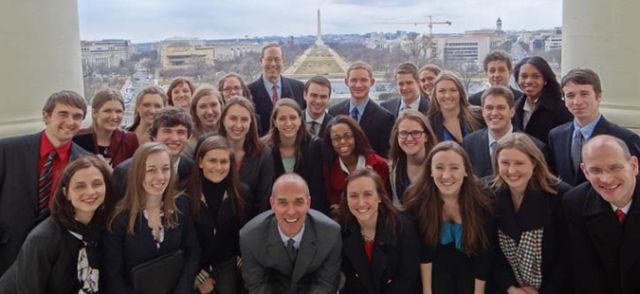Title
Religion and Regionalism: Congregants, Culture and City-County Consolidation in Louisville, Kentucky
Document Type
Dissertation
Publication Date
5-2010
Abstract
Literature on religious involvement in public affairs typically examines the national scene, particularly public opinion and political behavior in presidential elections. Few scholars examine religious actors in urban politics and policymaking. Those who do study local politics emphasize morality policy and ignore issues of metropolitan governance and institutional design, central concerns of the urban politics field. This dissertation fills that gap by studying Louisville, Kentucky, site of the first large-scale city-county consolidation since 1969. I ask: does religion affect how people vote in a consolidation referendum and shape their opinions about merged government? I employ a survey instrument (N=807), collected randomly across Louisville Metro in 2006, and use multiple linear and binary logistic regression to predict religiosity, “culture war” stances, and consolidation referendum participation and support. I control for socioeconomic status, demographics, residence, and political ideology. I operationalize religion as a variable in two ways: as a factor score index measuring level of religiosity, combining behavior, belief, and salience items; and as religious affiliation, predominately Roman Catholic and Southern Baptist in Louisville. I also employ the 2006 General Social Survey for comparison with the nation and several additional religion databases to better understand Louisville’s religious ecology.
I find that religiosity did not significantly affect one’s turnout or vote but is positively related to opinions of the merged government. Religious affiliation did not significantly affect turnout but significantly affected one’s vote and opinions. Regression results show that Catholics were 37 percent more likely to support consolidation than Southern Baptists. I downplay theories that differences over redistribution to central cities and political trust may be driving differences over consolidation.
I posit a theory labeled “polity replication” based in the institutional and organizational theory and sociology of religion literatures. I argue that participation in a religious denomination’s organizational structure conditions members to prefer similar structures in other societal institutions. Two forms of metropolitan governance, monocentrism and polycentrism, parallel the poles of church polity (i.e., denominational governance): episcopal/centralized (Catholic) and congregational/decentralized (Baptist). In conclusion, I present recommendations and implications for research, religious practice, and politics/policymaking.
Inclusive pages
1-280
Document Version
Published Version
Sponsoring Agency
University of Lousiville: Department of Urban and Public Affairs
eCommons Citation
Ambrosius, Joshua D., "Religion and Regionalism: Congregants, Culture and City-County Consolidation in Louisville, Kentucky" (2010). Political Science Faculty Publications. 41.
https://ecommons.udayton.edu/pol_fac_pub/41
Included in
American Politics Commons, Models and Methods Commons, Political Theory Commons, Religion Commons, Urban Studies Commons




Comments
Copyright © 2010, Ambrosius, Joshua D.